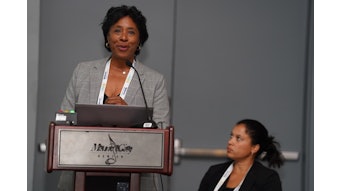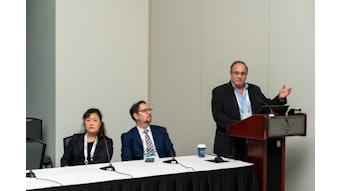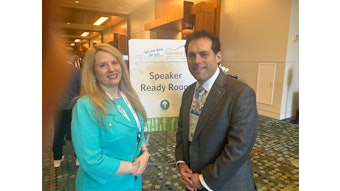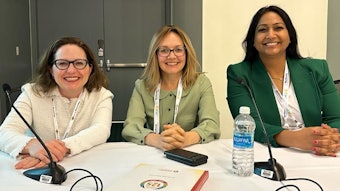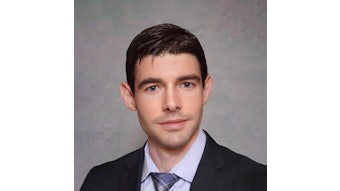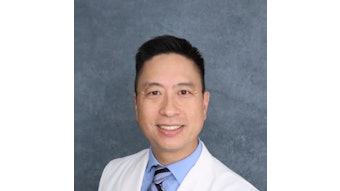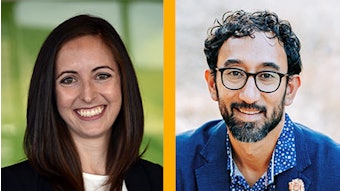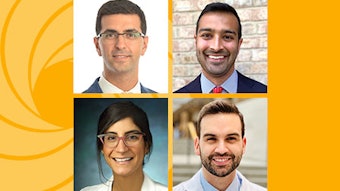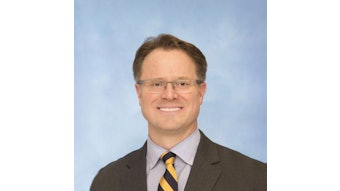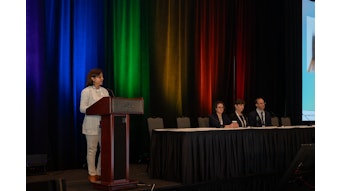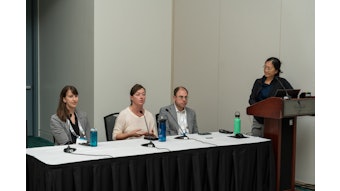Meeting the Challenges in Value-Based Healthcare
What are the differences between fee-for-service and value-based care, and why should you care?
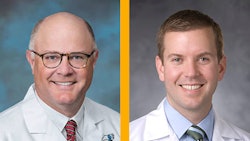
Value-based healthcare is poised to transform ways otolaryngologists engage referrals from primary care providers and are compensated by payers. The shift from fee-for-service to value-based payment models that has been transforming the primary care space and a handful of specialties over the past decade will impact otolaryngology and virtually every other medical specialty by 2025.
“In the eyes of the CMS (Centers for Medicare & Medicaid Services), fee-for-service is a volume-driven, highly variable expense model,” said Willard C. Harrill, MD, otolaryngologist with Carolina Ear Nose & Throat, Sinus and Allergy Center and Adjunct Assistant Professor of Otolaryngology at Wake Forest Baptist Health and the University of North Carolina School of Medicine in Chapel Hill. “Value-based care is built around a diagnosis/episode-of-care model intended to make healthcare costs more predictable. With the insolvency of the Medicare Trust Fund expected by 2026 and the life expectancy of Medicare recipients continuing to rise, CMS is driving the value-based healthcare paradigm shift. Like the EMR-driven mandates, change in some form is coming to otolaryngologists.”
Dr. Harrill will open his session “Value-Based Healthcare: What Should Otolaryngologists Know about This Evolving Paradigm?” on Wednesday with a look at the key differences between fee-for-service and value-based care—and why otolaryngologists must proactively engage this process to ensure their continued financial survival.
“Most of the focus on value-based health has been in the primary care arena and has not been well-developed for fee-for-service specialists,” said Charles R. Woodard, MD, Associate Professor and Chief of Facial Plastic and Reconstructive Surgery and Chief of Comprehensive Otolaryngology at Duke University Health System in Durham, North Carolina. “Fee-for-service is a race to the bottom, but it’s easy to understand: The more I do, the more I get paid. Unfortunately, there is no currently required quality output, no measure of whether or not those services are truly providing the value they are intended to provide.”
Fee-for-service is driven by CPT codes, Dr. Harrill explained. Every service has its own CPT code and charge. Reimbursement is based on volume-based billing.
Value-based service is based on ICD10 codes, i.e., disease episode-of-care payments.
“It is no longer about being paid for a service, it is about diagnosis management within a defined episode-of-care and being rewarded for delivering value within cost of care at or below expected levels based on risk adjusted factors,” Dr. Harrill continued.
“Value-based care is all about sharing risk and reward based on care coordination of that disease. To say the word no one wants to hear, this is basically a capitated bidirectional risk model with both upside and downside risk within an alternative payment (APM) structure. Otolaryngology will not be so straightforward as our specialty will remain in fee-for-service from some time. However, we will be engaging APM’s within accountable care organizations (ACOs) while being held accountable for our fee-for-service cost footprint within disease management. Presently, there is no infrastructure that is built out for specialists to engage in this process or even formulate strategies or guidelines. It’s an evolving art moving out of primary care ACO models and into a cost-accountable specialist referral business model.”
The evolution started from the fee-for-service baseline. Phase I saw the development and spread of ACOs that have brought alternative payment and shared savings programs to primary care and a few specialties in the form of bundled payments. The goal was to reduce the occurrence of unpredictable, high-cost events by improving chronic disease management, care coordination, and avoiding unnecessary high-cost site-of-service utilization. “Value” in otolaryngology will likely evolve around keeping the patient out of high-cost sites-of-service, using medications and procedures when disease severity allows for other options.
A decade of ACO experience shows the value-based approach can work, at least in primary care.
“Phase II is specialist-based engagement,” Dr. Harrill said. “We’re talking about high-performance collaborative specialty physician networks, which translates into payer and primary care driven narrow referral networks, where specialists are chosen by their ability to provide predictable costs and outcomes within some standard measure.”
The real question is whether otolaryngologists wait for some as-yet undefined model of value to be presented or to take a proactive role in shaping the strategies and metrics that will be used to define value care pathways, outcomes, and reimbursement models for our specialty.
“We don’t have great metrics to define value, the link between the care we provide, and the outcomes patients report and that insurance companies see,” Dr. Woodard said. “There is an opportunity to define those metrics, to collect and analyze the data that support the high-quality care we provide. It is the Academy’s responsibility, in coordination with the Triological Society, to identify the key experts and come to a consensus on what those data need to look like and to validate the outcomes measures. Some of this work has been done, but more is needed to meet expectations in a value-based care environment.”
Defining the metrics that constitute quality is only half the picture, he added. Value-based care assumes that value equals quality plus access to care over cost. The higher the denominator, cost, the lower the value of the care being delivered.
“It is important for the specialist to understand, and manage, where high-cost delivery mechanisms exist,” he explained. “The most relevant mechanism for a surgical specialist would be the site of service, hospital-based versus an ASC type of environment.”
CMS has already set 2025 as the target to bring specialty care into the value-based world. Otolaryngology has a head start in terms of best practices, clinical reviews, and consensus statements, Dr. Woodard said.
“We need to make sure we have a seat at the table defining the quality and access aspects of the care we are providing,” he said. “And we have to get a handle on costs to the degree that a provider can. The workflow, and consequently, payments look different in value-based care. Current practice models must adjust to these differences for future financial success.”
